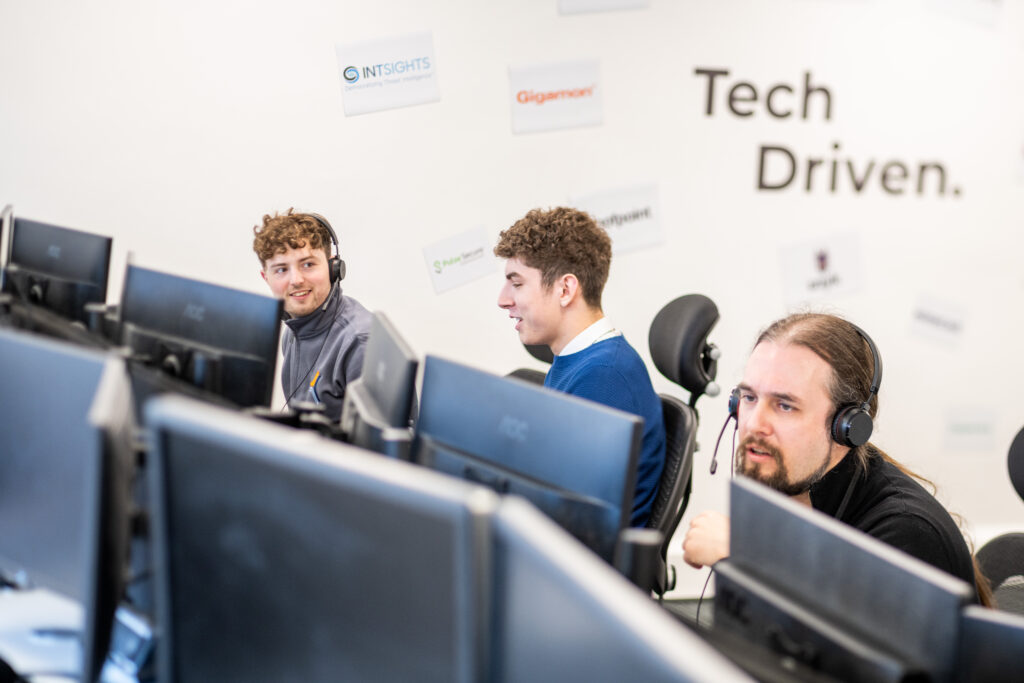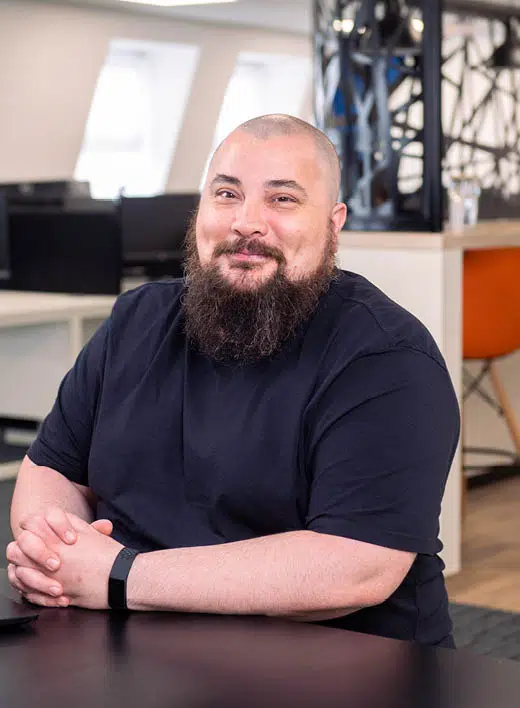Our view on apprenticeships at SEP2
SEP2 are huge advocates of apprenticeship programmes. Currently, 24% of our workforce are undertaking an apprenticeship and are showing incredible growth and development within their teams. We recently took the time to speak to our Directors, Mike, Paul and Tim, at SEP2 and Claire and Dave our People Managers who also lead Learning & Development, to find out in more detail why SEP2 values apprenticeships and to hear their individual thoughts and experiences.
When you started your career, what was the general view of apprenticeships?
Paul Starr: It was for manual labour type jobs.
Dave Gore: Apprenticeships were only available for Plumbers, Hairdressers and builders!
Mike Goodwin: They were for “tradespeople” like plumbers, electricians. Apprenticeships were for people who are more “hands-on” vs a-levels/degrees which were for people who were more academically led.
Claire Lee: I had some awareness of apprenticeships, however, had not been exposed to them much further than that
How has the view of apprenticeships changed since then?
Paul Starr: Apprenticeships are now for all type of roles and jobs and provides a more hands-on way of learning, which suits so many people.
Mike Goodwin: Having gone down the a-levels/degree route myself, and now seeing how apprenticeships work in SEP2, my view has changed totally. The actual learning I did at university is not as transferable in a lot of cases as what is being done by our apprentices. The level of actual real-world experience is critical and is something that I wasn’t prepared for after finishing university, and took quite a while to develop, whereas our apprentices are getting that all of the time, and learning the theory to support what is found and is being done in practice.
Claire Lee: The view has changed massively; they are a great option. It is really great to watch an apprentice grow.

What training provider do we use at SEP2 and why?
Paul Starr: For the technical apprenticeships we use GK Apprenticeships, their passion and support on Apprenticeships aligned with SEP2. Allowing SEP2 to focus on the employee and hands on part of the job while being supported by GK to assist with the learning and portfolio parts of the apprenticeship.
Dave Gore: GK Apprenticeships – With a strong combination of Vendor courses and qualifications the apprenticeship programme gives a great platform on what to build a solid foundation in the Cyber Security industry. QA – one of the largest apprenticeship providers in the UK, our current degree apprentice is study via Northumbria University working towards his level 6 qualification. QA and the University offer a network of help and support in all areas of the apprenticeship giving the apprentice a great chance to thrive and learn. LDN – New this year! With an Ofsted mark of Outstanding, we are positive our new Marketing apprentice is in safe hands. A company that likes to bring apprentices together from different organisations allowing a multitude of wider development and for the apprentice.
How do apprenticeships impact SEP2 and return on investment?
Tim Ward: They have a positive impact on us here at SEP2
Dave Gore: It’s about internal growth and learning. Our business is very specific in what we offer and do, the apprenticeships give general education and foundational knowledge coupled with our own in-house training, giving our apprentices the best possible start in this ever-changing landscape. Return on investment is not immediate and as a business, we fully accept this, but we are very much in it for the long run. Apprentices also give the business a different input and often will see things in a different way allowing us as a company to be open to other ways of working and collaboration.
Mike Goodwin: Especially in our industry of cyber security, there is a significant skills shortage. couple that with our company values, the size of the available candidate pool is quite small. Our apprenticeships allow us to expand our team with people who are proving to be eager learners, and in doing so, they are not only learning our business and the skills needed, but also the values and ethos of SEP2, which is a very important thing for a company that has “people powered” in our values.
Claire Lee: Apprenticeships work well for SEP2, we get to watch each individual grow, develop and achieve.

Why do SEP2 choose the apprenticeship route to bring in new talent?
Tim Ward: Creating different pathways to join SEP2 helps maintain the broad spectrum needed, new ideas, and growth in any organisation.
Dave Gore: With apprenticeships open to anyone you will always get people who have a valid interest in the subject and see this not as “just a job” but as part of a team and an opportunity to really progress themselves. The apprentice must have a certain level of buy-in when signing up for the apprenticeship and this is replicated by SEP2 in the large amount of training support and mentoring which is offered. Once combined, this results in an individual who is competent in their day job, has a great work ethic and is here for the long term.
Mike Goodwin: To quote Paul, who captured this perfectly (and I no doubt will get the quote wrong!) – we can teach the technical elements of what we do, but what we find the most valuable is attitude and aptitude. People who are looking for apprenticeships show this attitude naturally, they are looking for a more hands-on learning style, they have an attitude that is willing to learn and learn by doing.
How is off the job training provided?
Dave Gore: Off the Job (OTJ) is flexible and is at apprentice and line manager discretion. Apprentices are encouraged to manage their OTJ with their daily tasks and workload allowing them to prioritise what is important and when they have down time to concentrate on apprenticeship work. Weekly catch-ups are had with all apprentices to ensure they are on track and happy with what they are doing.
Mike Goodwin: Our apprenticeship providers help us do this, as well as our in-house people team.

How is on the job training provided?
Dave Gore: Apprentices are treated as members of the team and are not treated any differently to Business-as-usual staff members. They are expected to do tasks that are asked of them and given the training to make sure they are confident in what they are doing. Alongside the apprenticeship, they are also offed internal training and qualifications allowing them to widen their knowledge and skills.
Mike Goodwin: On the job training is managed within the different teams that our apprentices work in. In the technical teams, they are part of the day-to-day workload and are helped by the more senior members of the team. In the sales team, the on-the-job training is managed by Tim and includes all elements of the sales and lead development process that would be expected.
What piece of advice would you give a future apprentice to stand out during the application process at SEP2?
Tim Ward: Be yourself and share what you’re really passionate about.
Paul Starr: Be passionate and articulate clearly that you enjoy the subject.
Dave Gore: Be yourself, be interested, have a clear understanding of where you want to get to but overall have a passion for the subject matter.
Mike Goodwin: Show your willingness to learn and apply yourself in a hands-on style.
Claire Lee: Be yourself!
Interested in becoming a SEP2 apprentice?
Head over to our Join Our Team page to explore our current vacancies.








